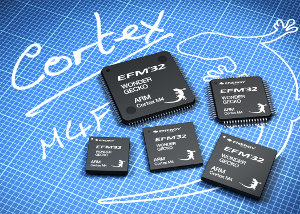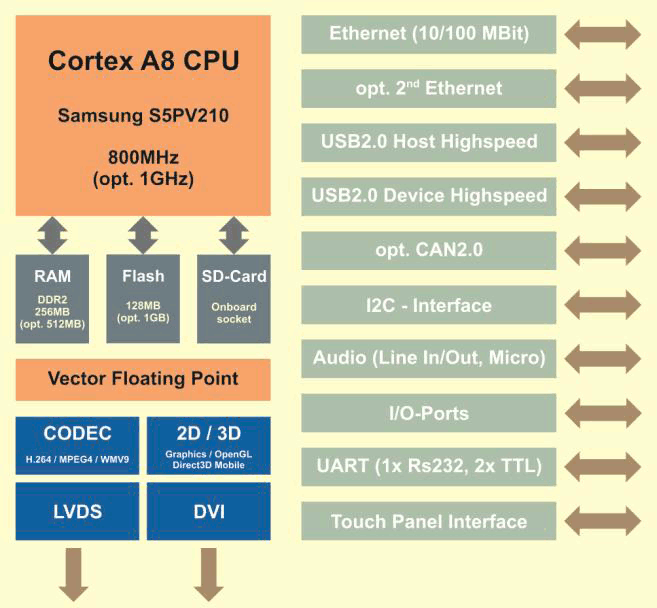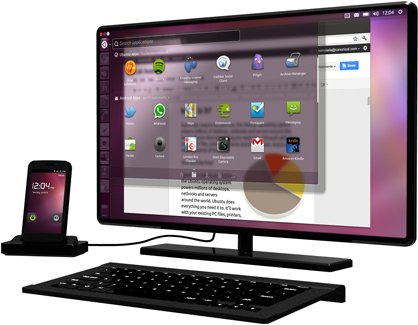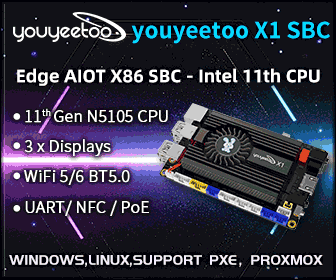The Android Builders Summit and the Embedded Linux Conference took place on February 13-17 2012, in San Francisco. The Linux Foundation has now posted videos of the talks as well as presentation slides on their website. Android Builder Summit 2012 Buildbot and Gerrit Integration, Improved CI Automation Using Android Outside the Mobile Phone Space The Android Ecosystem Case Study of Android Ice Cream Sandwich Rapid Bringup Towards a Standard Audio HAL for Android Topics in Designing An Android Sensor Subsystem: Pitfalls and Considerations A Novel Approach to In-Vehicle Infotainment (IVI) Based on Android Android Services Black Magic The Case For Security Enhanced (SE) Android Hardware and Android App Testing & Tuning Exposing the Android Camera Stack Usable Hardware Security for Android on ARM devices Using OpenOCD JTAG in Android Kernel Debugging The AllJoyn Open Source Project ADB: (Android Debug Bridge) : How It Works Android OTA Software Updates USB Device […]
TI Dual Core OMAP 5 Cortex A15 (800 Mhz) Twice as Fast as Nvidia Tegra 3 Quad Core Cortex A9 (1.3 Ghz)
Texas Instruments released a video showing the Web page loading time between TI OMAP 5 featuring two ARM Cortex-A15 cores at 800MHz (as well as specialized cores and accelerators), compared to a commercial device powered by a quad-core ARM Cortex-A9 processor at 1.3 GHz. They did not say it, but it’s got to be the Nvidia Tegra 3 since this is the only ARM Cortex A9 Quad-core processor with products available on the market today. In this benchmark, the devices handle 3 tasks simultaneously: Rendering 20 web pages Downloading videos Play a MP3 file The result is quite amazing, even hard to believe, with the OMAP 5 rendering the 20 pages in 95 seconds whereas it took the NVidia Tegra 3 over 200 seconds. I’m sure we’ll get an explanation of this performance difference at MWC 2012.
Energy Micro Introduces Cortex-M4F EFM32 Wonder Gecko MCU Series
Energy Micro has just announced the EFM32 Wonder Gecko series with the addition of 60 ARM Cortex-M4F based MCU to its Gecko offering or a total of 240 MCUs. The new controllers are highly energy efficient and minimize energy consumption by including a flexible range of standby and sleep modes, intelligent peripherals that allow designers to implement many functions without CPU wake-up, and ultra-low standby current. Wonder Gecko MCUs come with 256KB Flash memory and 32KB RAM and can achieve active mode current consumption of just 180µA/MHz. Devices provide a deep sleep mode that consumes just 400nA with RTC running, a shut-off mode requiring only 20nA and wake-up time as short as 2µs. The company explains that the LESENSE function block, a generic low energy sensor interface, enables monitoring of a mix of up to 16 capacitive, inductive or resistive sensors while the MCU core is in sleep or shut-off […]
Low Cost armStoneA8 SBC Technical Specifications Released
About 2 weeks ago, I wrote about F&S Elektronik Systeme armStoneA8 ARM Cortex-A8 Single Board Computer that will be unveiled at Embedded World 2012 at the end of the month, and sell for 49 Euros for one week, before selling for its regular price (119 Euros). At the time there were notso many technical details, but this has changed with the release of a product brief and hardware documentation. The unnamed Cortex A8 processor is the Samsung S5PV210 running at 800 MHz or 1GHz depending on the model. Several models of the board are available, but they all share those common specifications: Samsung Cortex™A8 with 800MHZ (1GHz) 128MB (1GB) Flash, 256MB (512MB)-RAM TFT LCD-Controller up to XGA resolution 2D/3D and 5-Window Layer Multiformat CODEC (MPEG4, H.264, WMV9) H.264 1080p@30fps 1x (2x) Ethernet 10/100Mbit 1x USB2.0 Device, 1x USB2.0 Host 1x CAN2.0, 1x I2C, 1x SPI 3x Serial (RS232 with 3,3V-level) […]
Canonical Brings Ubuntu Desktop to Multi-Core Android Smartphones
Canonical is pushing to move Ubuntu beyond Desktop PC, and we’ve already seen some mockups for Ubuntu Smartphones and the recent Ubuntu TV announcement. The Ubuntu smartphone is not there yet, but Canonical has another idea: running Ubuntu Desktop on your multi-core Android smartphone connected to a TV/Monitor via its HDMI or MHL interface, making Canonical, another company joining “your smartphone is your laptop” trend. Ubuntu for Android will provide a full desktop experience and include office software (which apparently is Google Docs…) , web browsers (Chromium and Firefox), an email clients (Thunderbird) and media applications on Android phones docked to a screen and keyboard. Canonical claims the transition between Android and Ubuntu is seamless thanks to tight integration with the Android service layer. Ubuntu and Android share the same kernel. When docked, the Ubuntu OS boots and runs concurrently with Android. This allows both mobile and desktop functionality to […]
Atollic TrueSTUDIO for ARM 3.0 To Be Released at Embedded World 2012
Atollic has just announced that Atollic TrueSTUDIO for ARM 3.0 – a C/C++ development tool for embedded developers – will be released on the 28th of February 2012, at Embedded World 2012, Nuremberg, Germany. Atollic TrueSTUDIO v3.0 will bring the following improvements: Redesigned user interface that is more intuitive to C/C++ developers New support for NXP LPC1000 Cortex-M0 and Cortex-M3 devices New support for Infineon XMC4000 Cortex-M4 devices New support for Energy Micro EFM32 (Cortex-M3) Upgraded support for STMicroelectronics STM32 devices Improved real-time interrupt tracing with ARM Serial Wire Viewer (SWV) interface. Execution time profiling now present information using bar charts Upgraded ECLIPSE platform to the latest “Indigo” release (3.7.1) Major upgrade of the GNU command line tools Upgraded TrueINSPECTOR, TrueANALYZER and TrueVERIFIER add-on products Supports over 800 ARM devices Hundreds of minor improvements Since the product has not been released, that’s currently all information there is. Further information will certainly […]
Moneto microSD Card Brings NFC to Android Smartphones and iPhones
NFC (Near Field Communication) is a feature present in many new smartphones that allows wireless payment among other things. Until now, if you had an iPhone or an Android smartphone without an NFC chipset, you would not have been able to take advantage of NFC. But this is about to change thanks to Moneto, a prepaid mobile wallet that works with a microSD card embedding an NFC Chipset. The Moneto Android Kit (29.95 USD) comes with a 1GB microSD card, a Booster Sticker, aPrepaid Debit Card, the Moneto app and 10 USD pre-loaded onto the account. The Moneto iPhone Kit (79.95 USD) comes with a microSD card, an iCaisse case, a Prepaid debit card, the Moneto app and 10 USD pre-loaded onto the account. You’ve got to love the iPhone markup… although there must certainly be a justification for the price difference that I’m missing… There are some caveats to […]
Seneca Uses GuruPlug Server Farm to Build Raspberry Pi Fedora Distribution
Prior to the Raspberry Pi Fedora 14 Remix launch party, Seneca has uploaded a video showing the work they have done to have Fedora 14 work on Raspberry Pi. Here are some interesting points ion this video: All basics application such as a web browser, office suite, the components you need to build a LAMP (Linux, Apache, MySQL, PHP) server… are already working. 2D graphics acceleration is not implemented yet, so the first release may feel a bit sluggish. But eventually, since the Raspberry Pi has a pretty good GPU, 2D support (OpenVG in Cairo library?) will be implemented at some points in time, either by Seneca or other people in the development community. Seneca uses around 60 ARM devices in their build farm that generates all the binaries for the Fedora ARM Remix release (e.g. the ones you can get with “yum install”) and among those device there are […]











